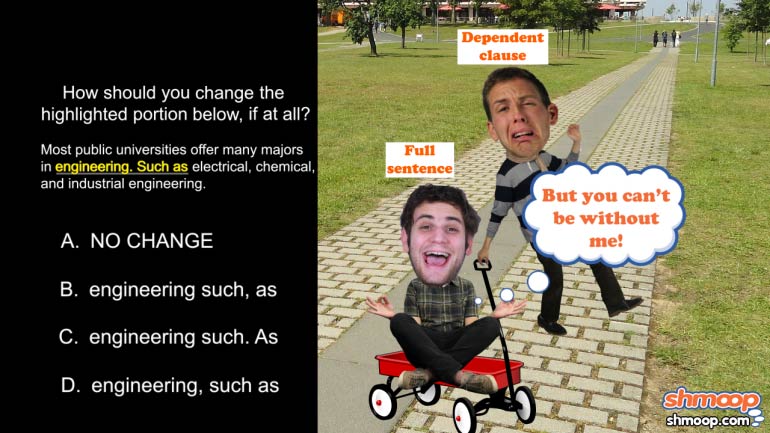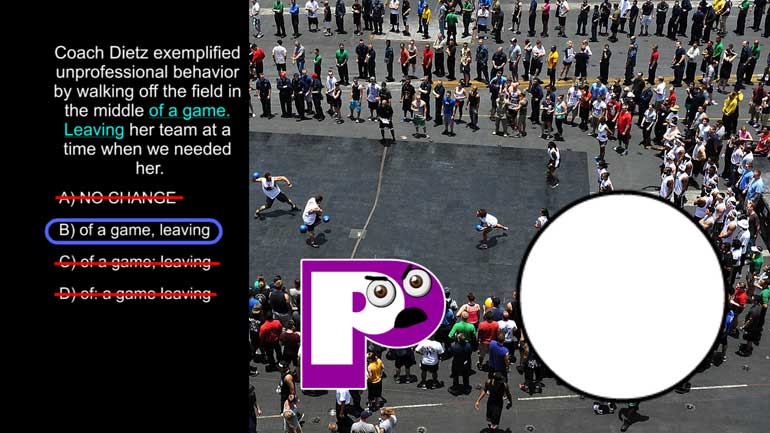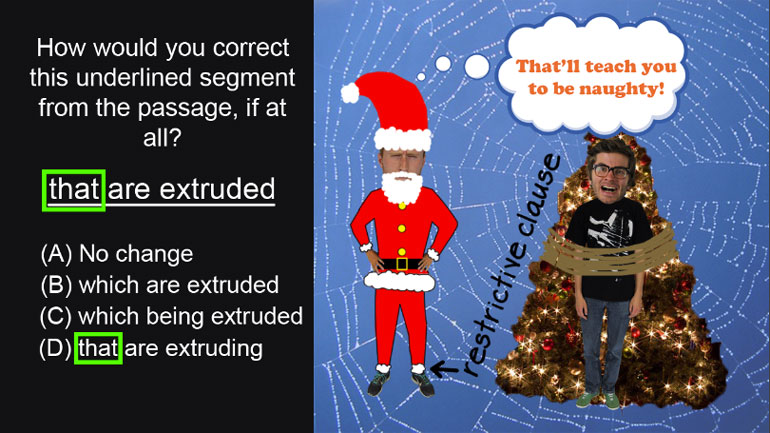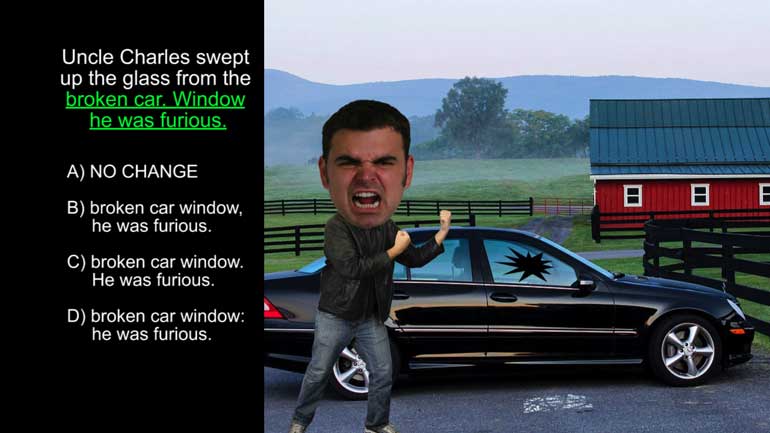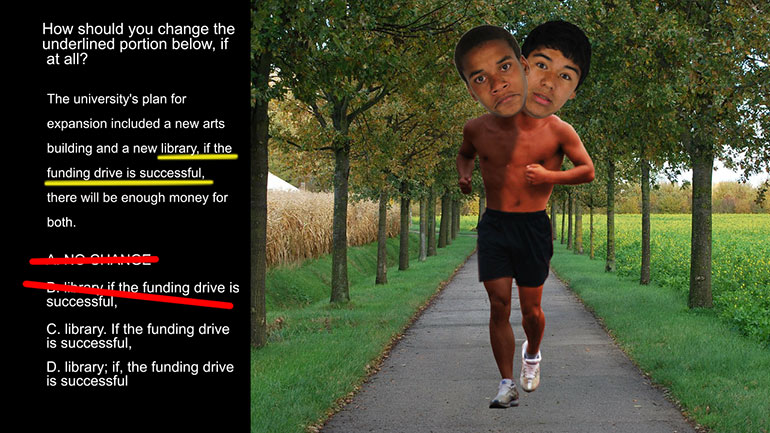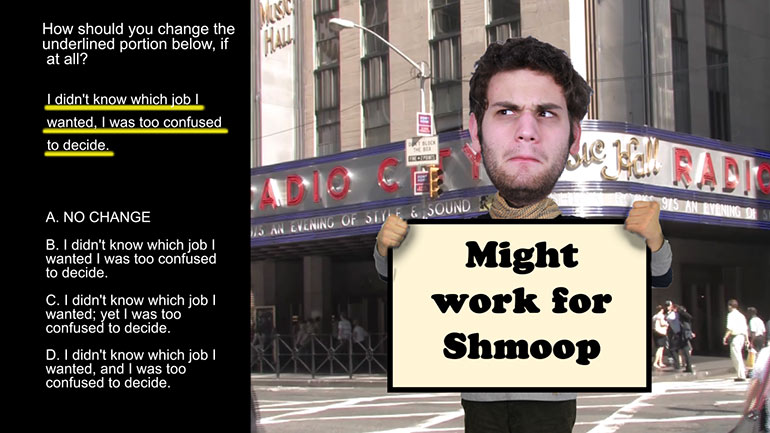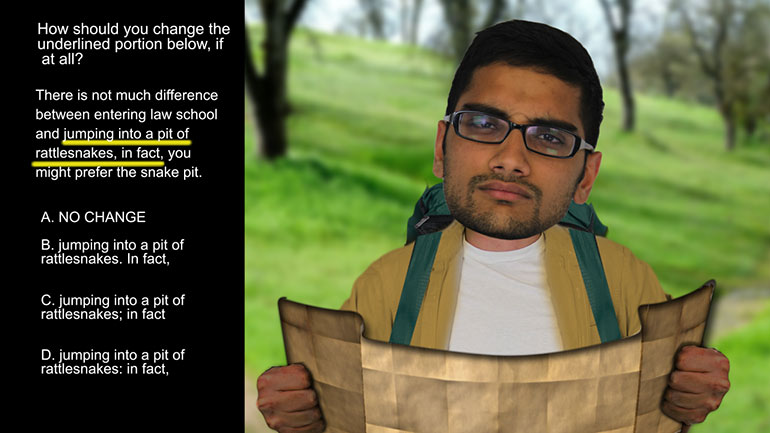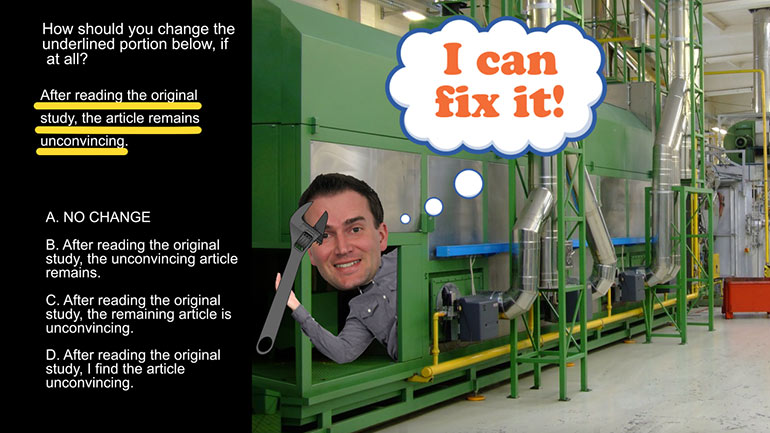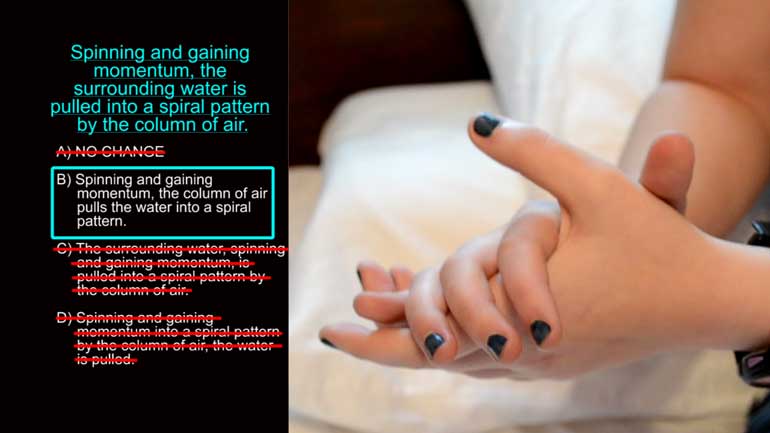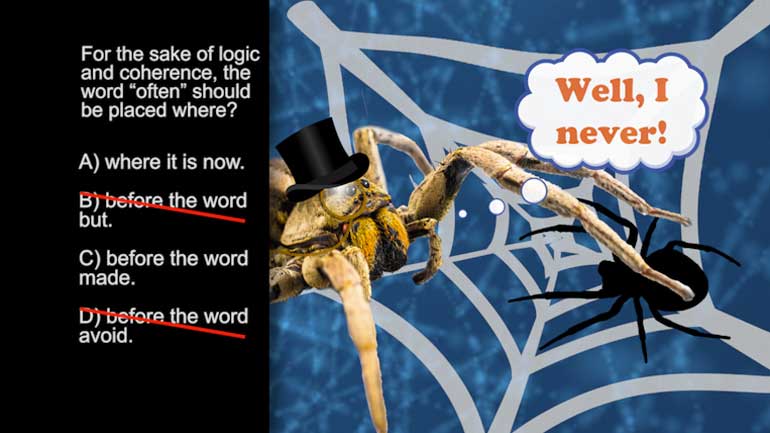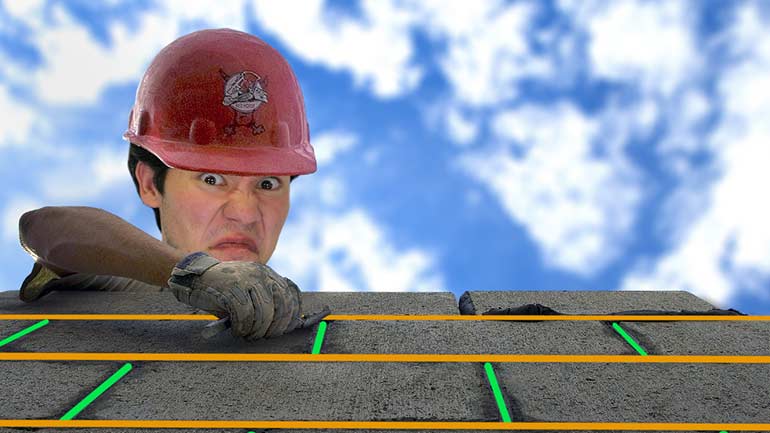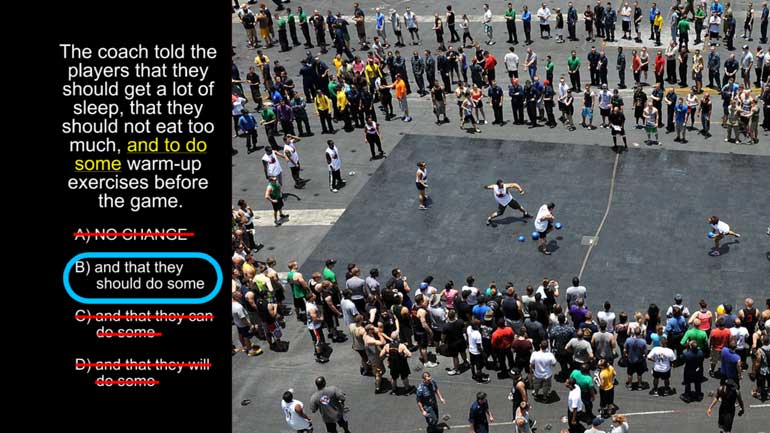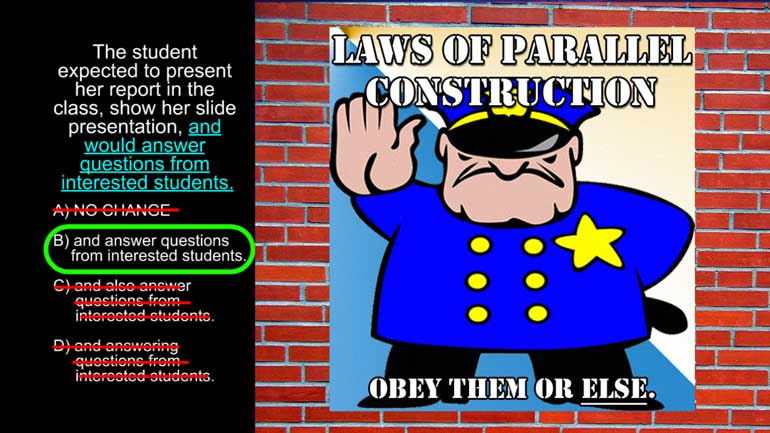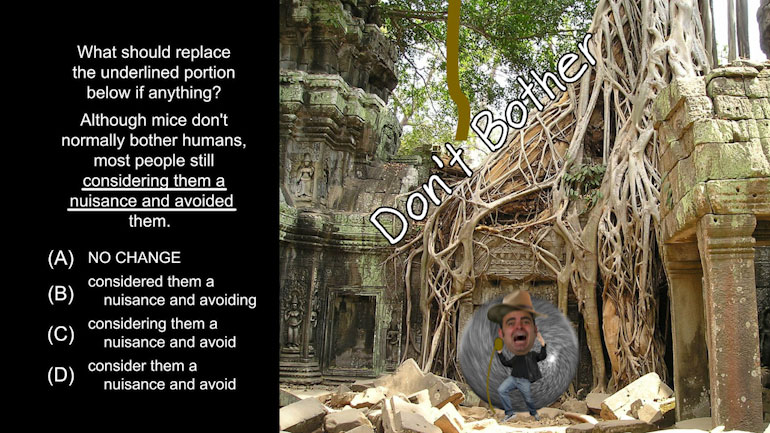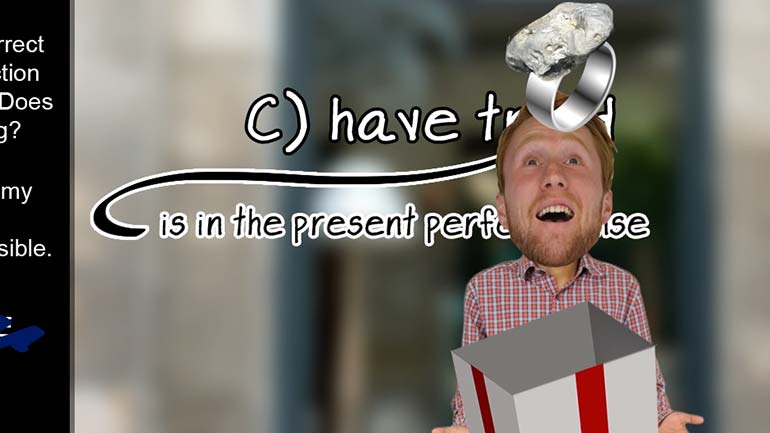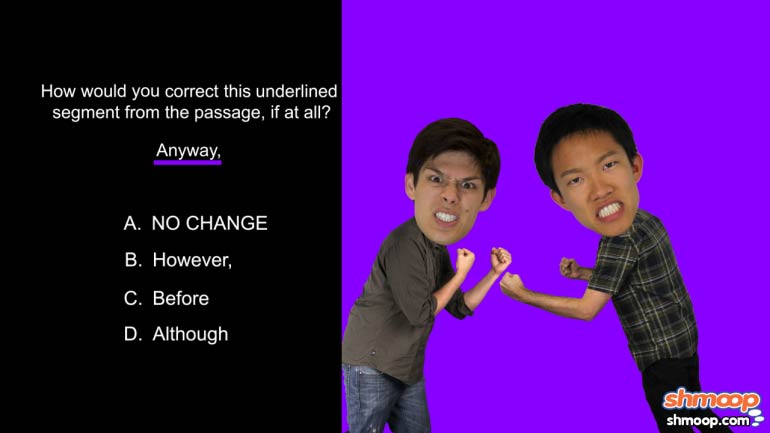ShmoopTube
Where Monty Python meets your 10th grade teacher.
Search Thousands of Shmoop Videos
Sentence Structure Videos 40 videos
Want even more deets on Run-on Sentences? Click here to review. Or take a look at our entire grammar section for all the goods.
Transitioning smoothly from one sentence to the next can be tough. With a little bit of our help, your teacher will be calling you Mr. or Ms. Suave...
ACT English: Sentence Structure Drill 1, Problem 1. Properly punctuating dependent clauses.
ACT English 5.8 Passage Drill 186 Views
Share It!
Description:
ACT English: Passage Drill 5, Problem 8. The best placement for the word "strong" would have been where?
Transcript
- 00:03
Here’s your Shmoop du jour, brought to you by sticky threads.
- 00:07
Great for weaving spider webs, bad for weaving shirts.
- 00:36
The best placement for the word “strong” would be where?
- 00:40
And here are the potential answers...
- 00:44
This question requires us to solve “The Case of the Misplaced Modifier.”
Full Transcript
- 00:49
No worries, though; it doesn’t take Sherlock to solve this one.
- 00:52
The rule of thumb is that it’s best to place a modifier as close to the thing it’s modifying
- 00:56
as possible. Failing to do so puts us on the road to confusion.
- 00:59
In this particular sentence, the adjective “strong” is meant to describe the term “dragline threads.”
- 01:06
So the right answer will be the one that places modifier and modified snuggly together.
- 01:11
Option (D) is definitely incorrect because it places “strong” the furthest away from “dragline threads.”
- 01:17
Just listen to the sentence (D)’s way...
- 01:19
“Their webs are complex nets of dragline threads radiating strong out from...”
- 01:26
If we place the adjective “strong” after “radiating,” it makes it sound like the
- 01:29
adjective is trying to modify the way in which the dragline threads are radiating,
- 01:33
instead of the threads themselves.
- 01:36
If we take option (B)’s advice, there’s only more confusion in store.
- 01:40
Check it out....
- 01:41
“Their webs are complex nets strong of dragline threads radiating out from...”
- 01:47
If possible, this choice is even more confusing than the one before. It’s hard to tell what
- 01:50
the adjective is trying to modify here. The preposition “of” maybe?
- 01:55
No doubt this is wrong because adjectives can only modify nouns, pronouns, and other adjectives.
- 02:01
Whatever, we’ll toss this one on the pile before we waste too many brain cells on it.
- 02:05
Remember: whenever possible store brain cells away for when you’ll really need them.
- 02:11
(A) suggests leaving the adjective where it is now, so the sentence would read...
- 02:15
“Their webs are complex nets of dragline strong threads radiating out from...”
- 02:22
This doesn’t work either because in this version “strong” only modifies “threads,”
- 02:26
not “dragline threads.”
- 02:28
And dragline threads do so hate it when they’re not modified.
- 02:31
Choice (C) finally gets it right by placing the modifier before dragline.
- 02:35
The sentence now reads...
- 02:37
“Their webs are complex nets of strong dragline threads radiating out from...”
- 02:43
Placing one-word modifiers, like “strong,” directly before the thing they’re modifying
- 02:47
is usually the best way to avoid confusion.
- 02:49
A concern: Does Confusion ever feel bad that everybody tries to avoid it?
- 02:55
That’s gotta be a blow to the self esteem.
Related Videos
ACT English: Punctuation Drill 2, Problem 2. Where should the semi-colon be placed?
ACT English: Punctuation Drill 3, Problem 1. How should this sentence be changed so that it is grammatically correct?
ACT English: Punctuation Drill 3, Problem 2. How should we properly hyphenate the words in this sentence?
ACT English: Punctuation Drill 3, Problem 4. Which choice best formats this list of items?
ACT English: Punctuation Drill 2, Problem 1. Which choice of punctuation best completes the sentence?


